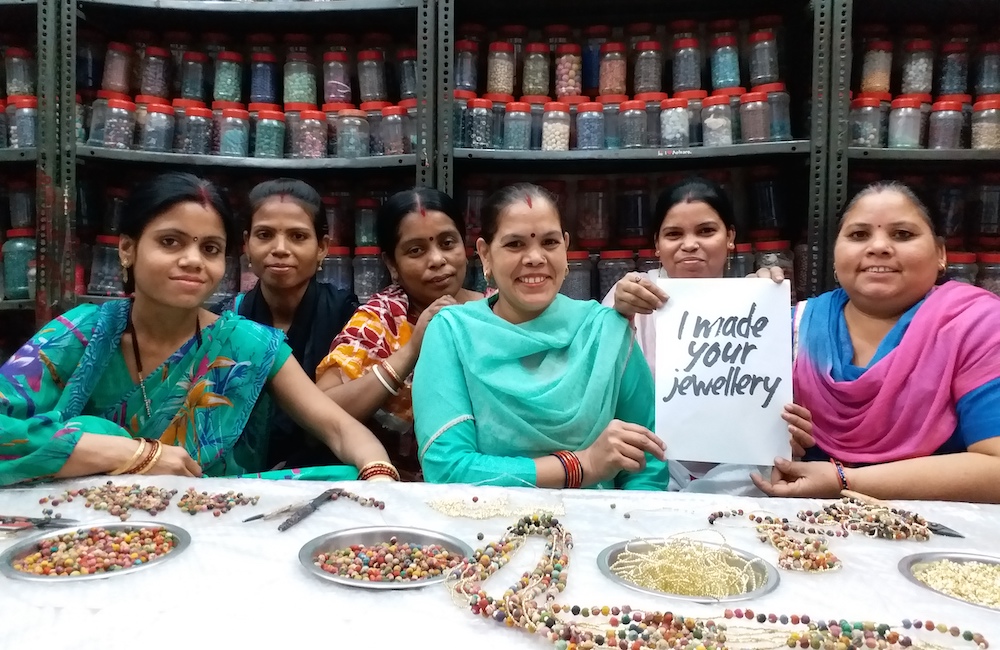
Read Time: 3.5 min.
Fashion Revolution Week: 10 years later
Background:
Fashion Revolution Week began in 2014, in response to the tragedy that happened on April 24, 2013, when the Rana Plaza, a garment factory complex in Bangladesh, collapsed and killed 1,134 garment workers and injured over 2,500!
Known as one of the worst industrial tragedies in history, it was far from the only one. This massive structural failure is one of many horrific accidents stemming from unsafe work conditions.
That was only one of several recent accidents in the garment industry. Yet out of the darkness, a revolution was born… An awakening … a revolution to create awareness, to raise questions and ultimately, to bring about change.
A change that begins with you and I as consumers.
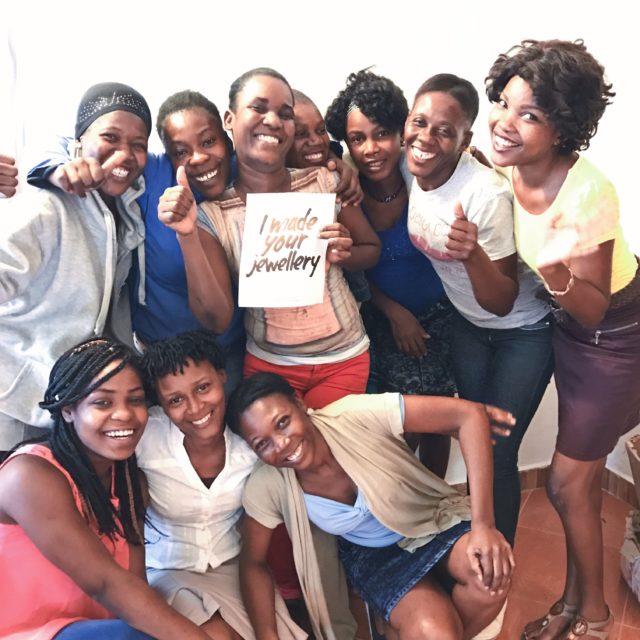
Fast Fashion: Profits Over People
The fashion industry has continued to grow at a frenzied pace, also known as “fast fashion”. As consumers crave the newest, hottest, fresh-off-the-runway styles, manufacturers scramble to turn out the newest looks as quickly as possible. This fast fashion focuses on quick, cheap production, where manufacturers must underbid their competitors to keep up in a growing market. Unfortunately, their employees are the ones carrying the burden and paying the physical price for their employers to maintain a foothold in this cut-throat market segment.
As was the case in Rana Plaza, when issues like large cracks or other structural warning signs arise at these factories, the pressure to meet industry demands doesn’t allow for the downtime to address unsafe working conditions. Unethical companies choose risk over human rights. The unfathomable cost of that risk was evident in Bangladesh 11 years ago this week, yet fast fashion is a larger industry today than it was in 2013 with brands like Shein, Zara, and Temu reporting profits in the BILLIONS (with a B!) within their first few years.
Trades of Hope is Proud to Stand with Fashion Revolution Week
Trades of Hope proudly stands with Fashion Revolution Week, the movement about changing the garment industry!
Together, we can put an end to human rights violations and instead see these workers as individuals first. This revolution starts with each one of us, as consumers, caring about the real people who make what we buy.
The majority of these workers are women: Women just like you and I – women with children, sharing the same hopes and dreams for a future without worry. They deserve to be paid a fair living wage so they can be with their families instead of working 12–14-hour days, 7 days a week.
Won’t you please stop and consider…
Who made my clothes, shoes, jewelry, bag, or _________?
BEFORE YOUR NEXT PURCHASE?
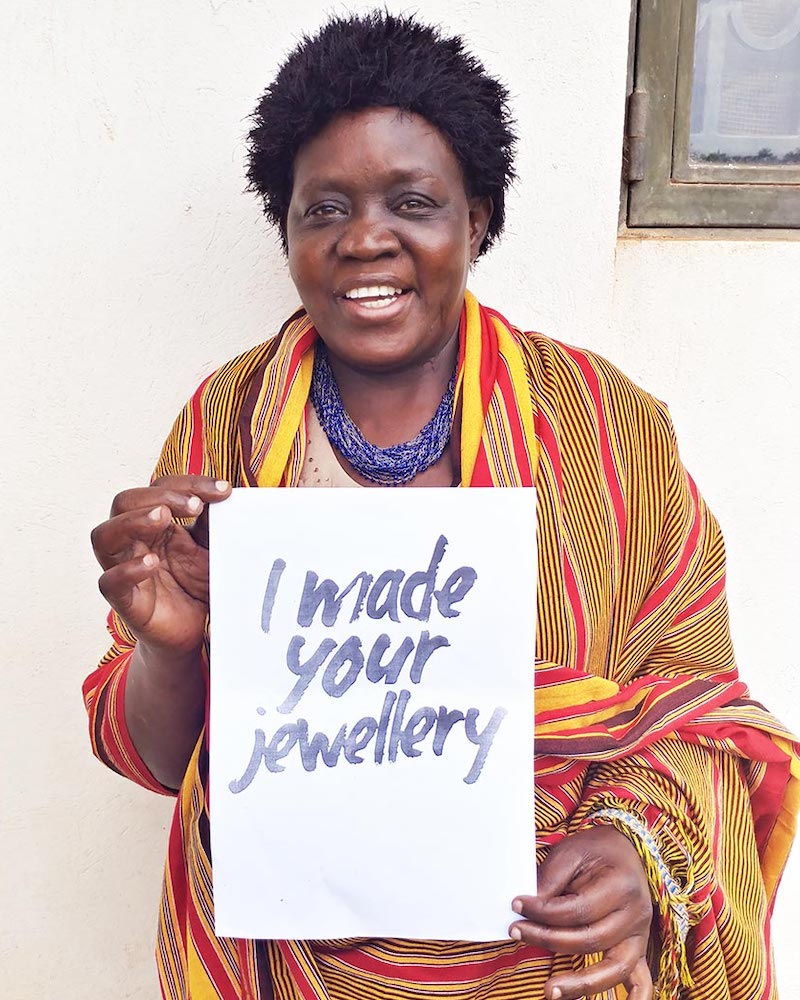
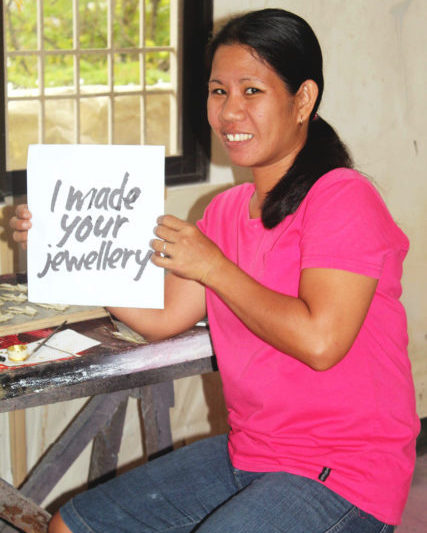
Trades of Hope is Proud to be
“Slow Fashion”
We empower our Artisan partners with safe working environments and living wages. We invest in their well-being, in their health, and in the sustainability of their communities. We pay our Artisan partners their asking price up-front, so our discounts and sales to customers never affect their income. We offer training and educational opportunities for their personal growth. We know the names of our Artisan partners. We know their stories, their struggles, their desires to meet their full potential, and see their children thrive. The only difference between us is the country in which we were born. Each and every one of them are equal to us – and we are ALL worthy!
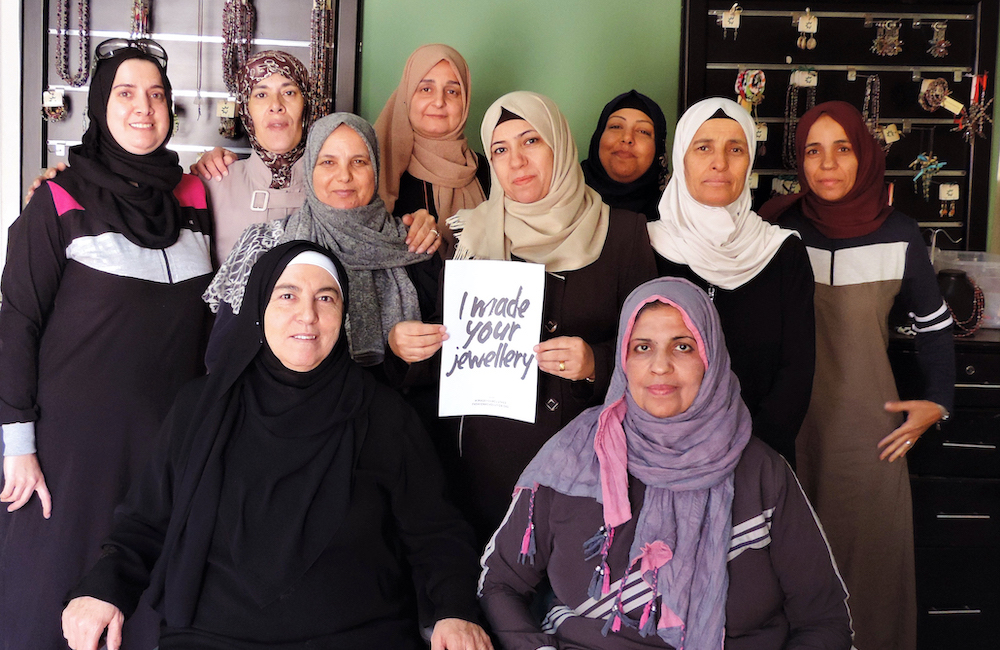
Shop to change lives, or make a larger impact by Partnering with us. Learn more about changing lives every day by becoming a Trades of Hope Partner!
If we all do our part, the slow fashion revolution will make sweatshops history!
What Can You Do?
SELF AWARENESS is key to changing working conditions and creating a more sustainable work ethic in the US and around the globe.
SHOP FAIR TRADE COMPANIES – there are more fair-trade options for all consumer products available today than ever before. Do your research, do your part.
DEMAND BETTER. Take a stand on social media: Tag, post, and @ mention companies and designers and demand to know #whomademyclothes
RAISE AWARENESS this week by posting photos in your ethically made fashion pieces and sharing on your blogs and social media pages with the hashtags #fashionrevolutionweek and #tradesofhope
POST YOUR ETHICAL STYLE PICS ON SOCIAL MEDIA wearing Trades of Hope products and you may be featured on our social media pages! Include the hashtags: #fashionrevolutionweek and #tradesofhope
Be sure to mention @tradesofhope in your posts + stories if we may share them from our corporate accounts: We love to see world changers like you!
SHARE OUR TRADES OF HOPE GRAPHICS showing the REAL PEOPLE all around the world that are proud to be “Slow Fashion” and take pride in each handcrafted piece.
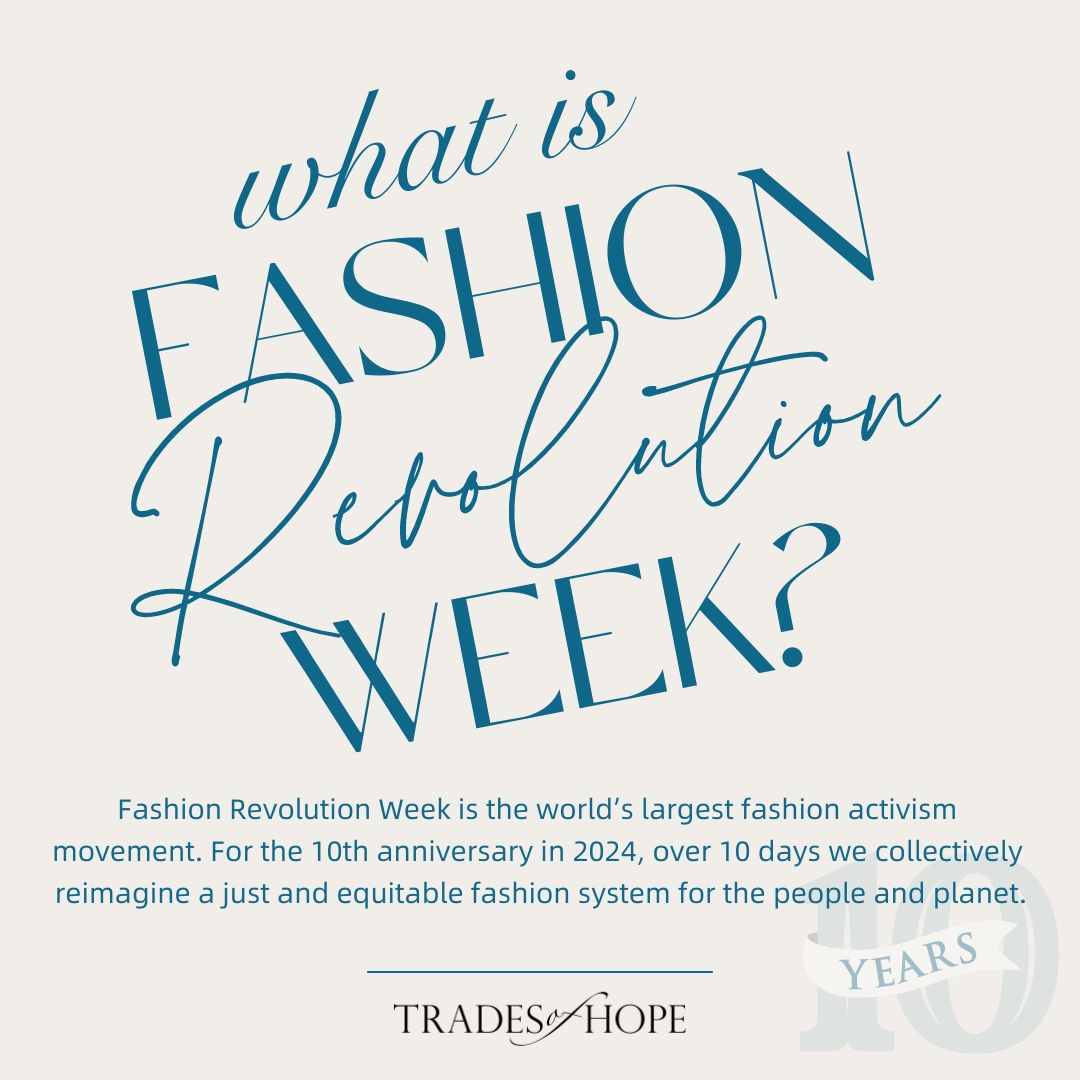
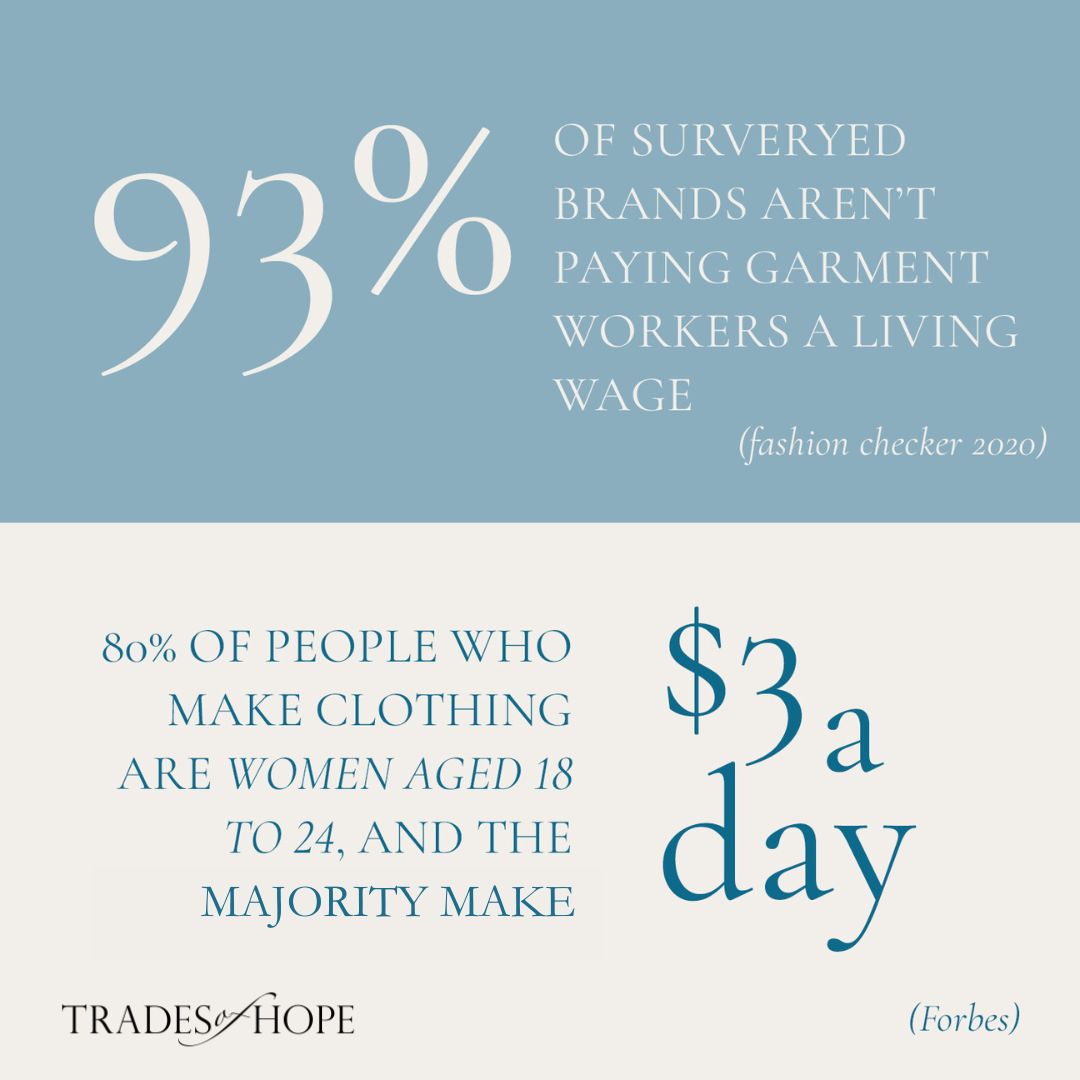
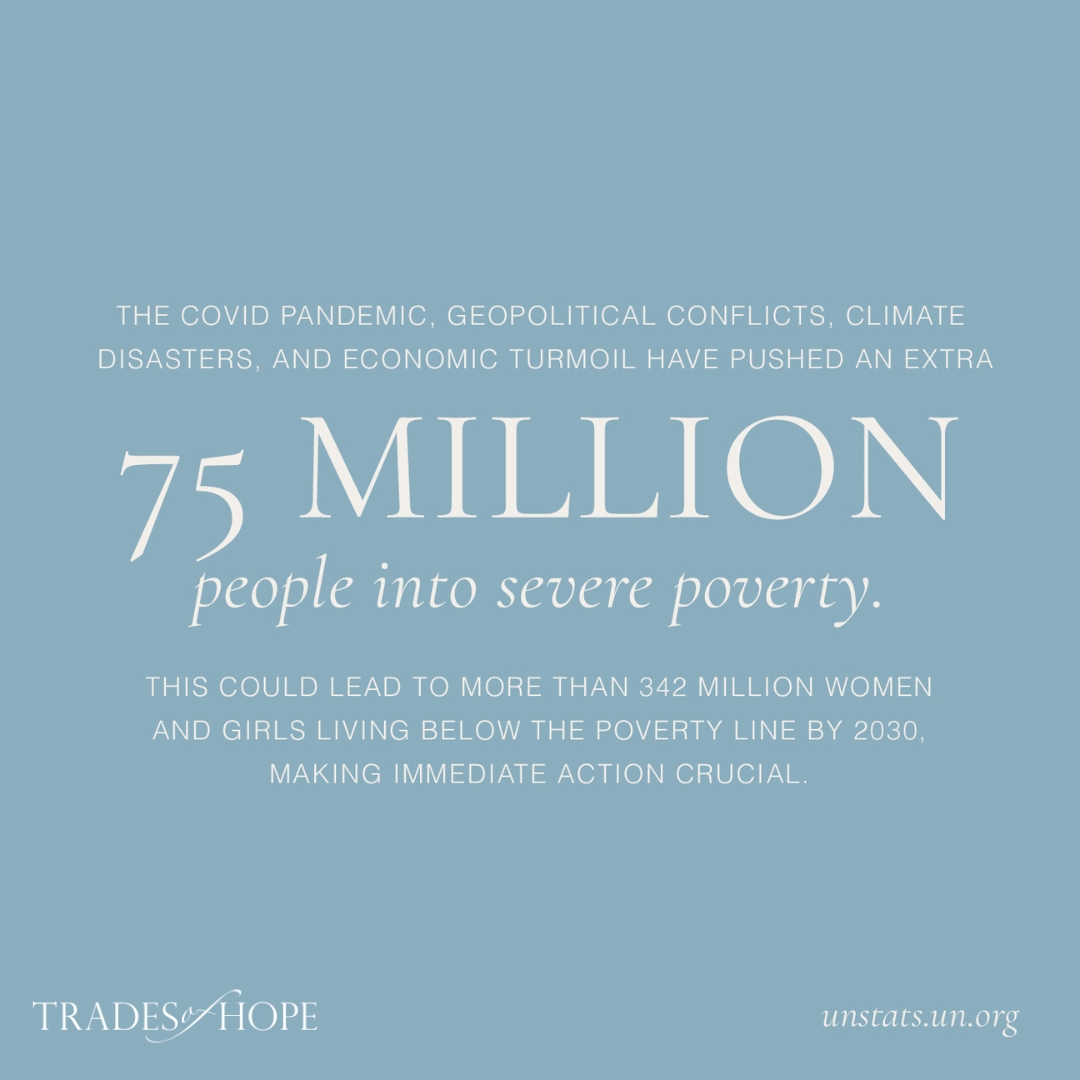
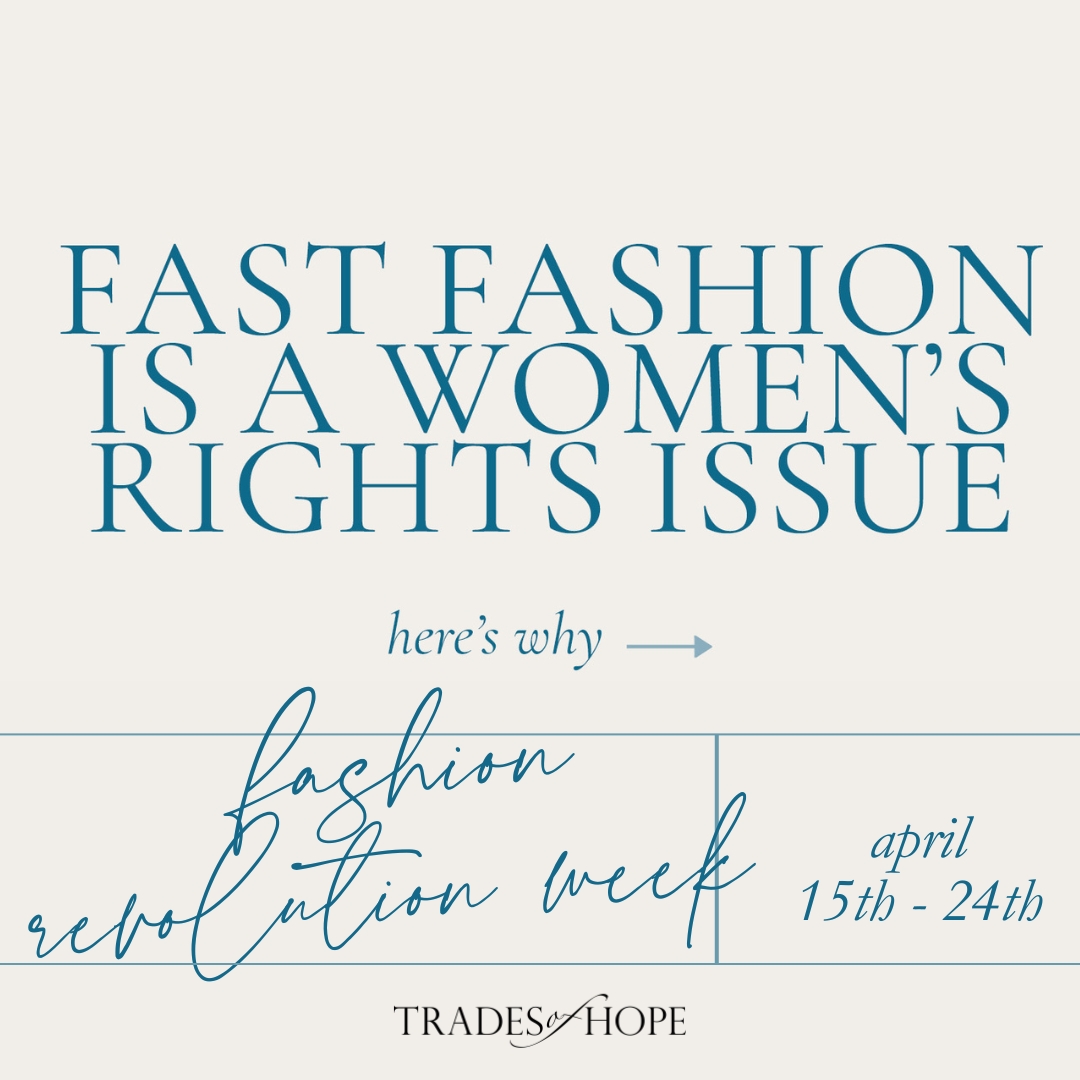
Celebrating 10 Years of Fashion Revolution: A Tribute to Slow Fashion
As we commemorate the 10th anniversary of Fashion Revolution Week, it’s time to reflect on the journey we’ve taken towards a more ethical and sustainable fashion industry. Over the past decade, the movement has sparked crucial conversations, challenged industry norms, and empowered consumers to demand transparency and change. At Trades of Hope, we stand in solidarity with Fashion Revolution, advocating for a fashion industry that values people and the planet over profit.
In the face of fast fashion giants, we’ve witnessed the detrimental effects of an industry built on exploitation, environmental degradation, and rampant consumerism. From sweatshop labor to pollution of waterways, the true cost of fast fashion extends far beyond its cheap price tags. However, amidst these challenges, the rise of slow fashion has been a beacon of hope.
Since 2013, the slow fashion movement has gained momentum, championing principles of sustainability, transparency, and ethical production. Here are some significant changes we’ve seen for the better in slow fashion:
Ethical Production:
Slow fashion brands prioritize fair wages, safe working conditions, and respect for artisans and garment workers. By investing in local communities and supporting traditional craftsmanship, they ensure that every piece of clothing tells a story of empowerment and dignity.
Sustainable Materials:
From organic cotton to recycled fabrics, slow fashion embraces eco-friendly materials that minimize harm to the environment. By reducing water usage, carbon emissions, and chemical pollutants, these brands are leading the way towards a more sustainable future.
Transparent Supply Chains:
Unlike fast fashion giants shrouded in secrecy, slow fashion brands are committed to transparency at every stage of the supply chain. By tracing the origins of materials and production processes, they empower consumers to make informed choices and hold brands accountable for their actions.
Empowering Women:
Many slow fashion brands, including Trades of Hope, prioritize women’s empowerment as a core value. By partnering with female artisans in marginalized communities, they provide economic opportunities, skills training, and a platform for women to thrive as entrepreneurs and leaders.
Conscious Consumerism:
Slow fashion encourages consumers to adopt a more mindful approach to shopping, focusing on quality over quantity and investing in pieces that are timeless, durable, and ethically made. By embracing a “less is more” mentality, we can reduce waste and lessen the impact of our fashion choices on the planet.
As we celebrate the progress made over the past decade, it’s important to recognize that our work is far from over.
The fashion industry still faces significant challenges, from labor rights violations to environmental degradation, but together, we can continue to drive positive change.
This Fashion Revolution Week, let’s recommit ourselves to the principles of slow fashion and advocate for a more just and sustainable future. By supporting brands that prioritize people and the planet, we can truly revolutionize the way we think about fashion. Join us in celebrating 10 years of Fashion Revolution and let’s continue to #WearFair, #WearHope, and #WearTheChange.
Share Freedom through Fashion when you join Trades of Hope as a Partner!
Slow Fashion: People Over Profit
If you would like to be part of the SOLUTION in the fight against Fast Fashion, we invite you to join us in creating Slow Fashion jobs this 10th Fashion Revolution Week!
Choose from our three JOIN THE MOVEMENT Collections and start making a difference today!
Enter code SHIP5 to enjoy $5 shipping on any Join Collection through 4/30/24!
Every design we sell represents a real person with a real story of hope. Visit our website to learn more about the life change happening though ethical fashion!
Ten Years of Fashion Revolution Week – Published April 24, 2024.


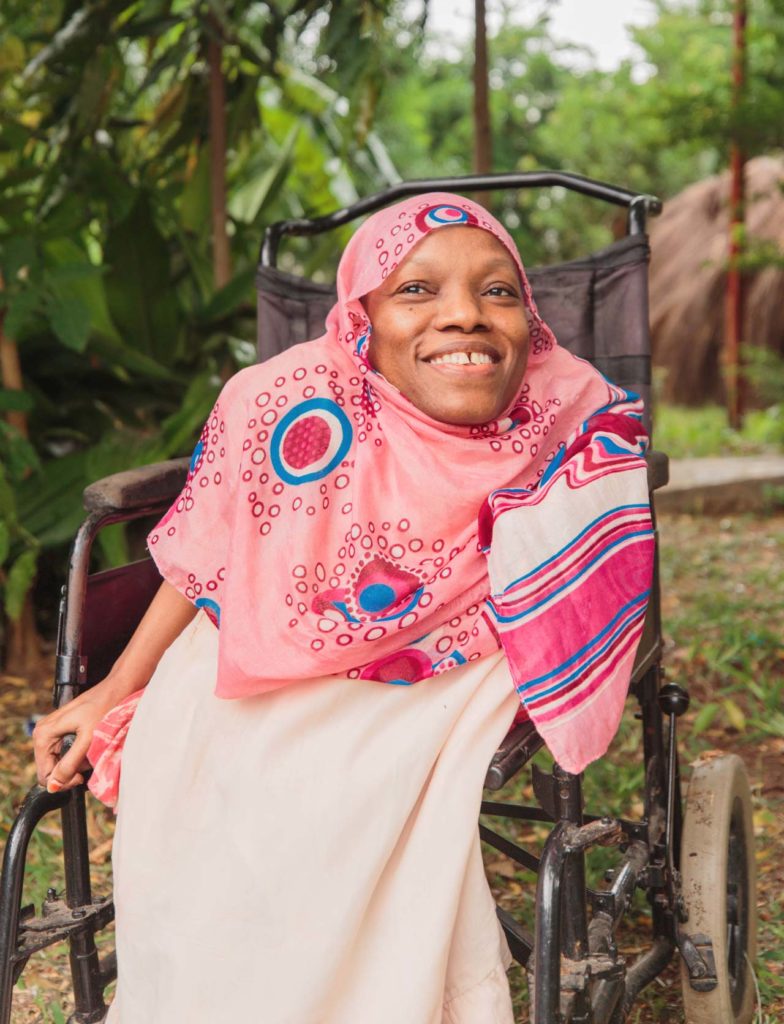
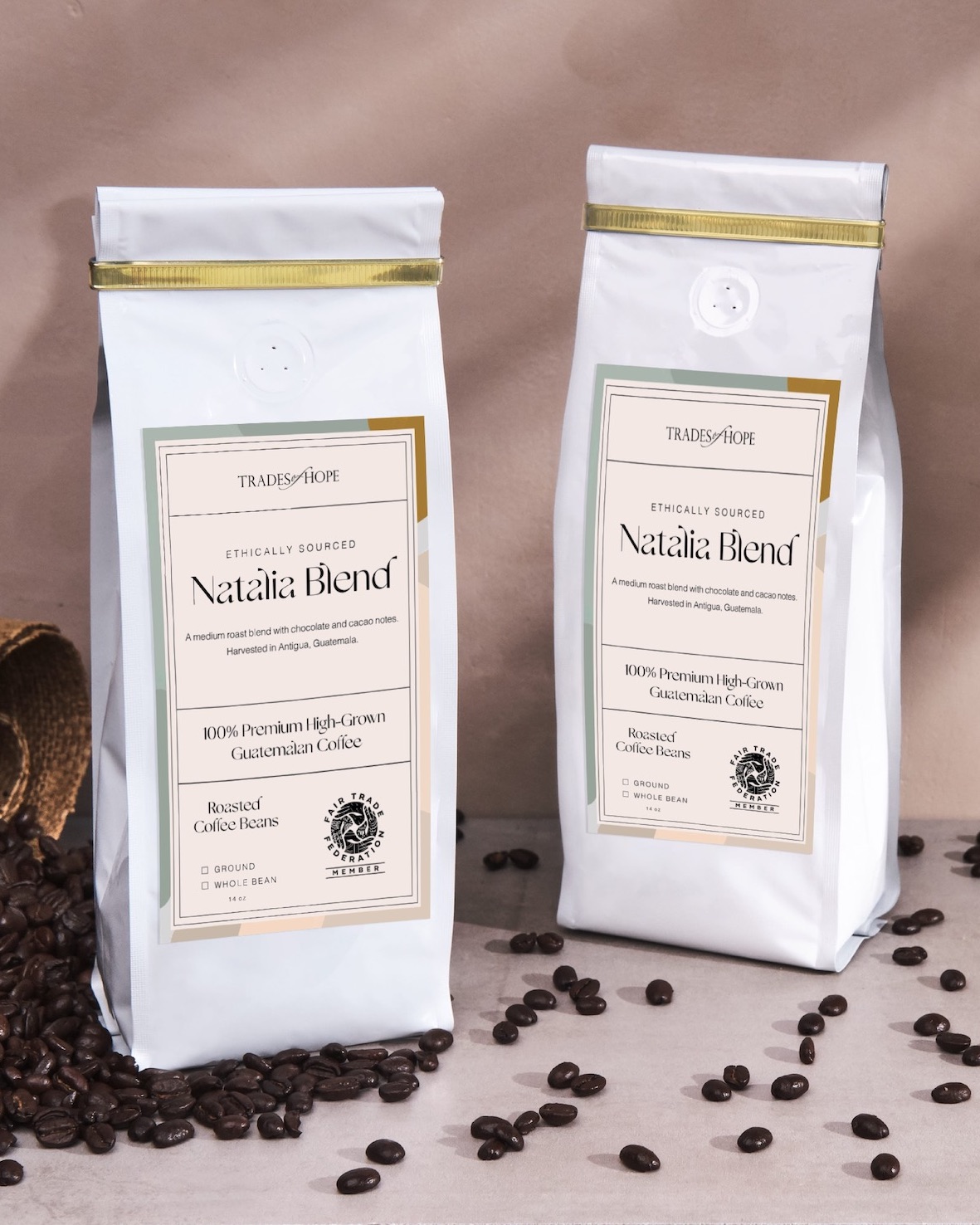
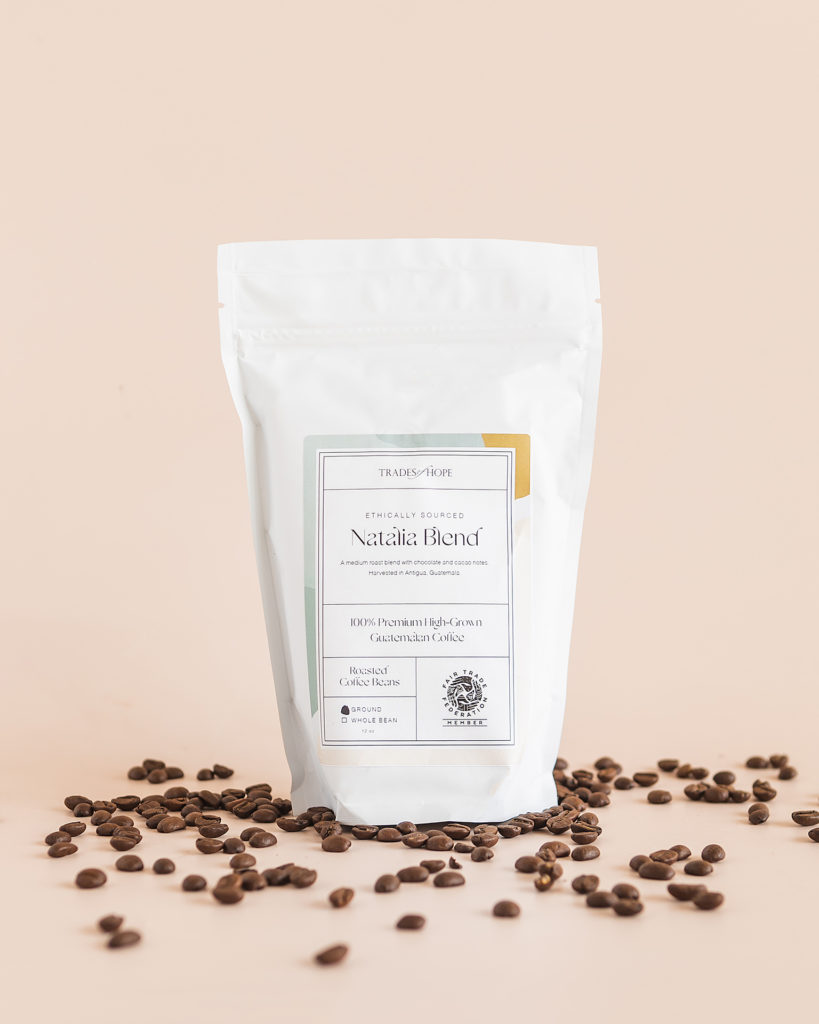
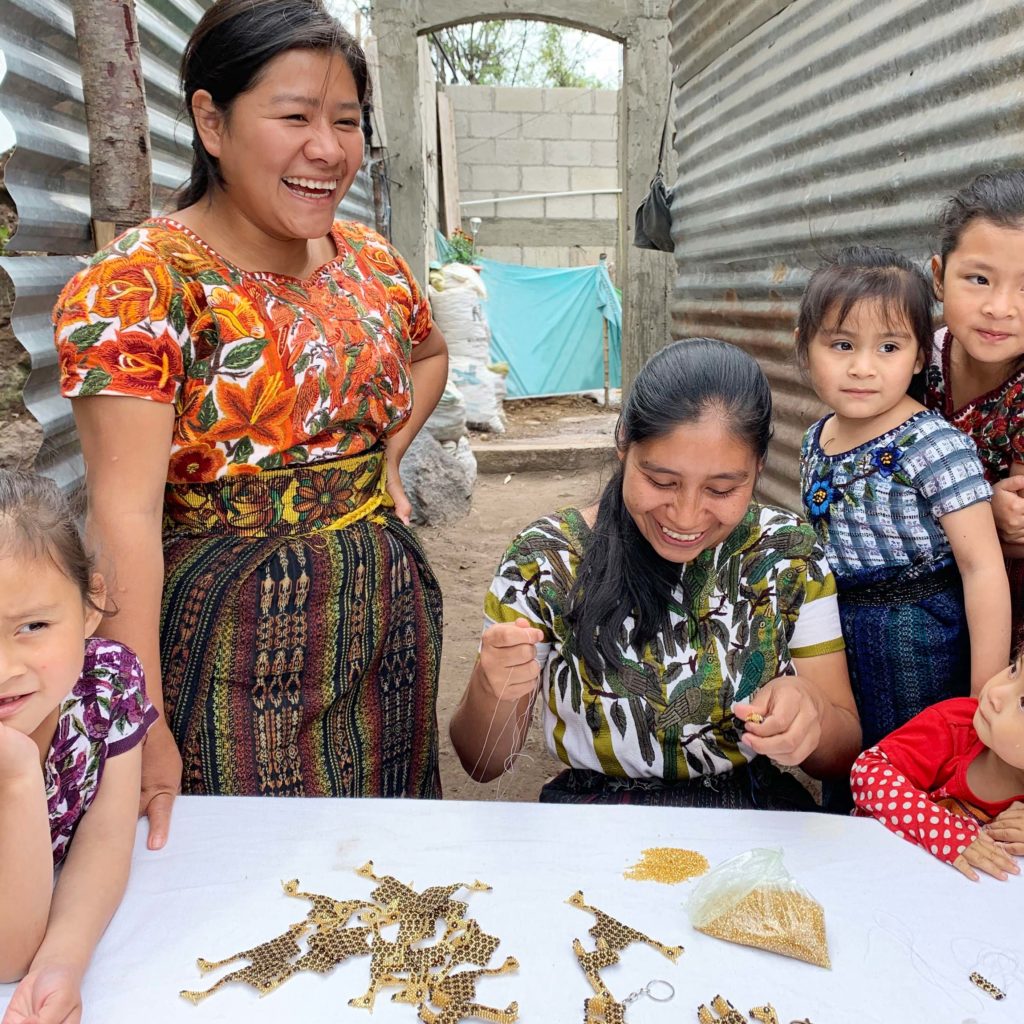
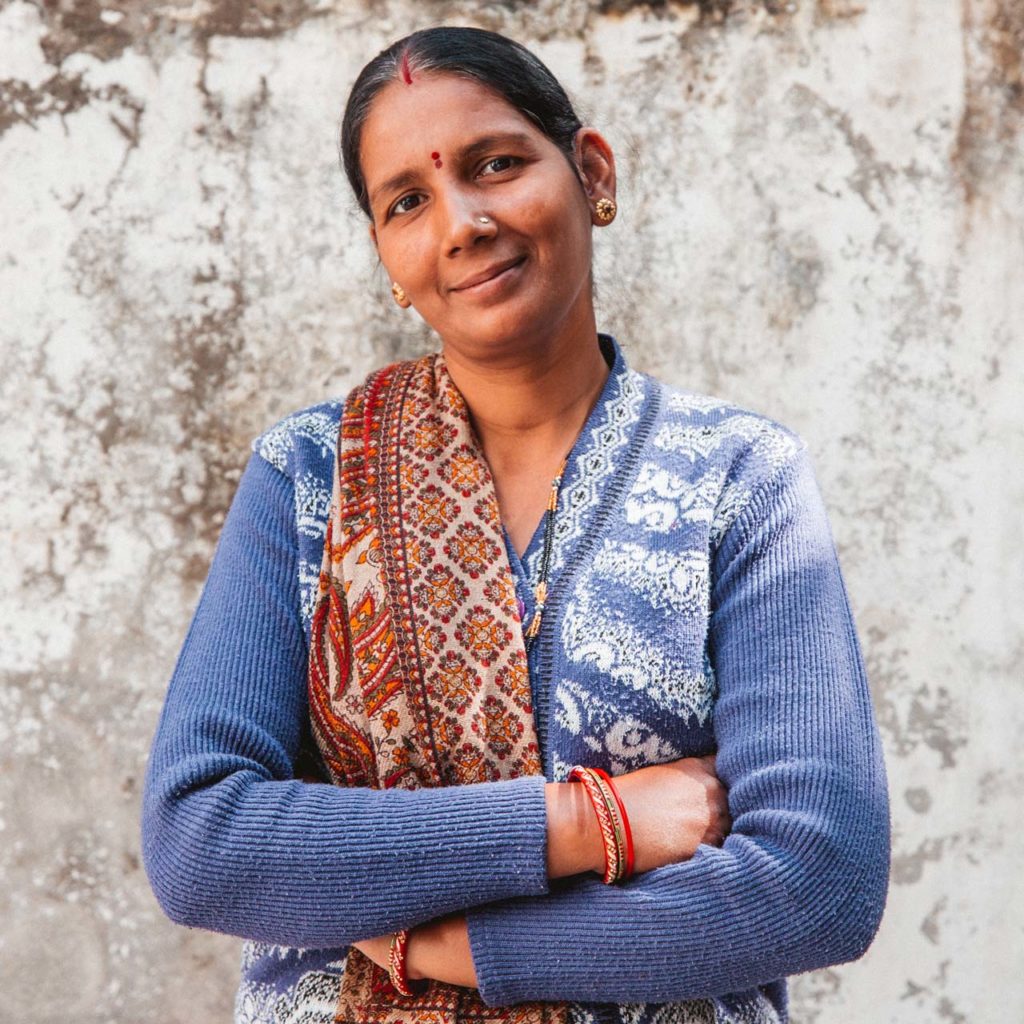
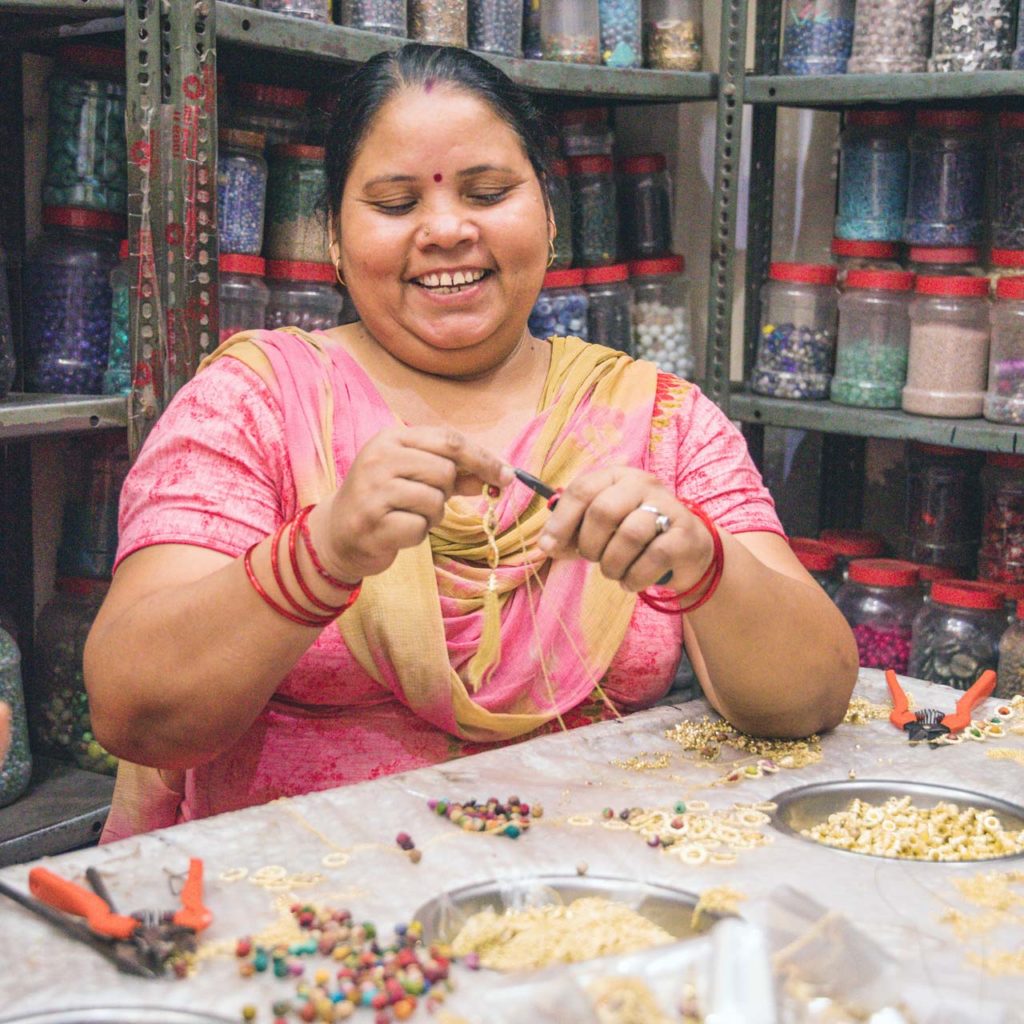
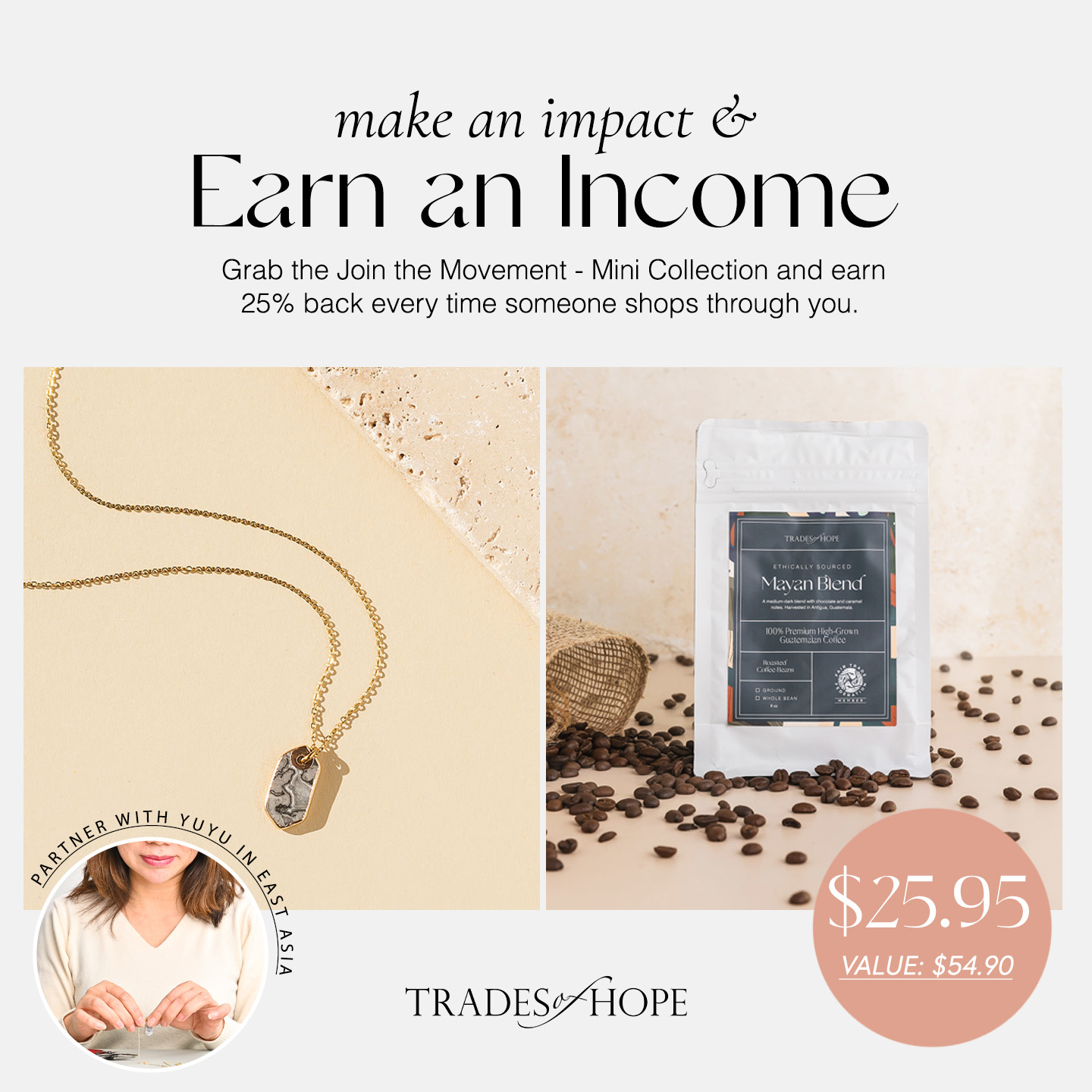
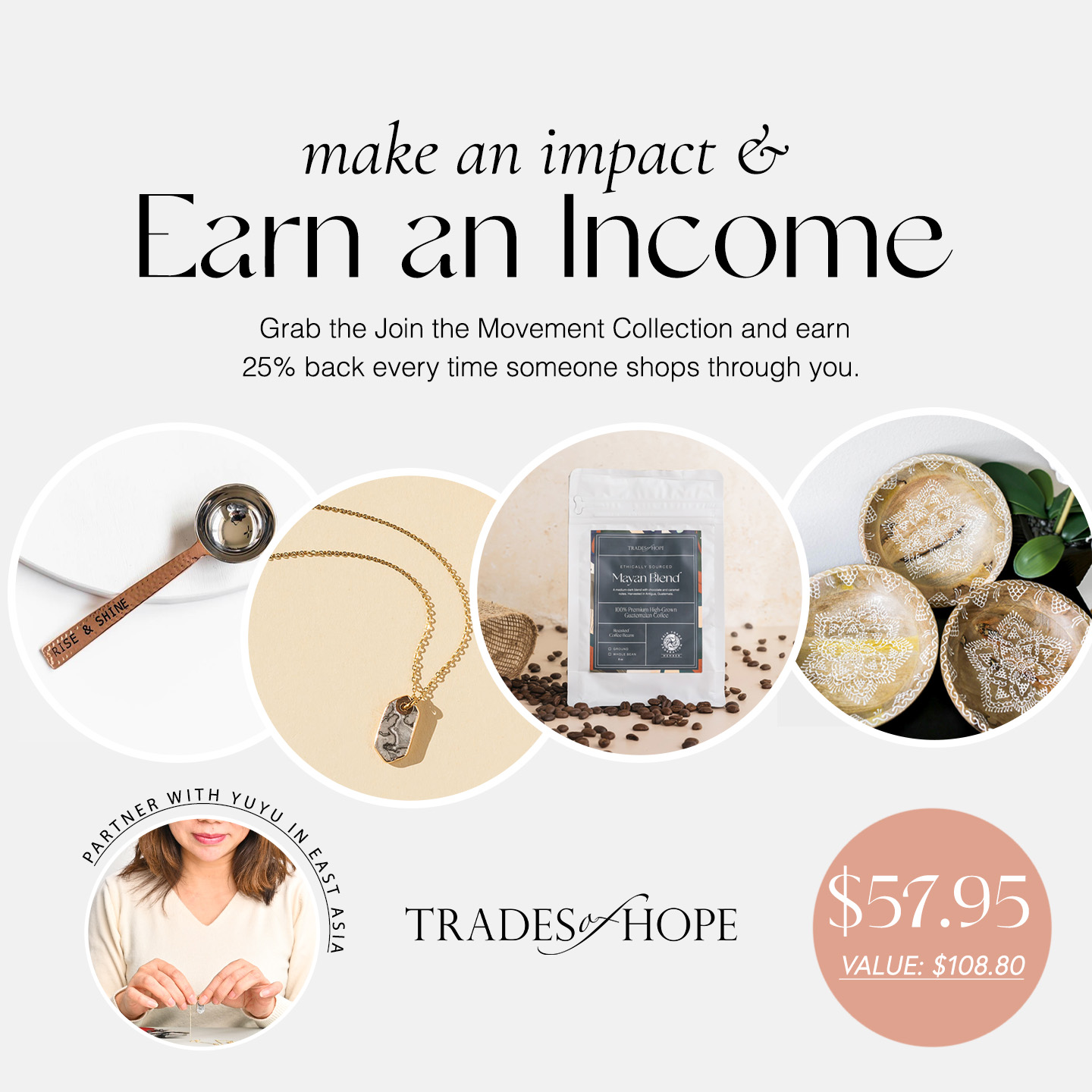
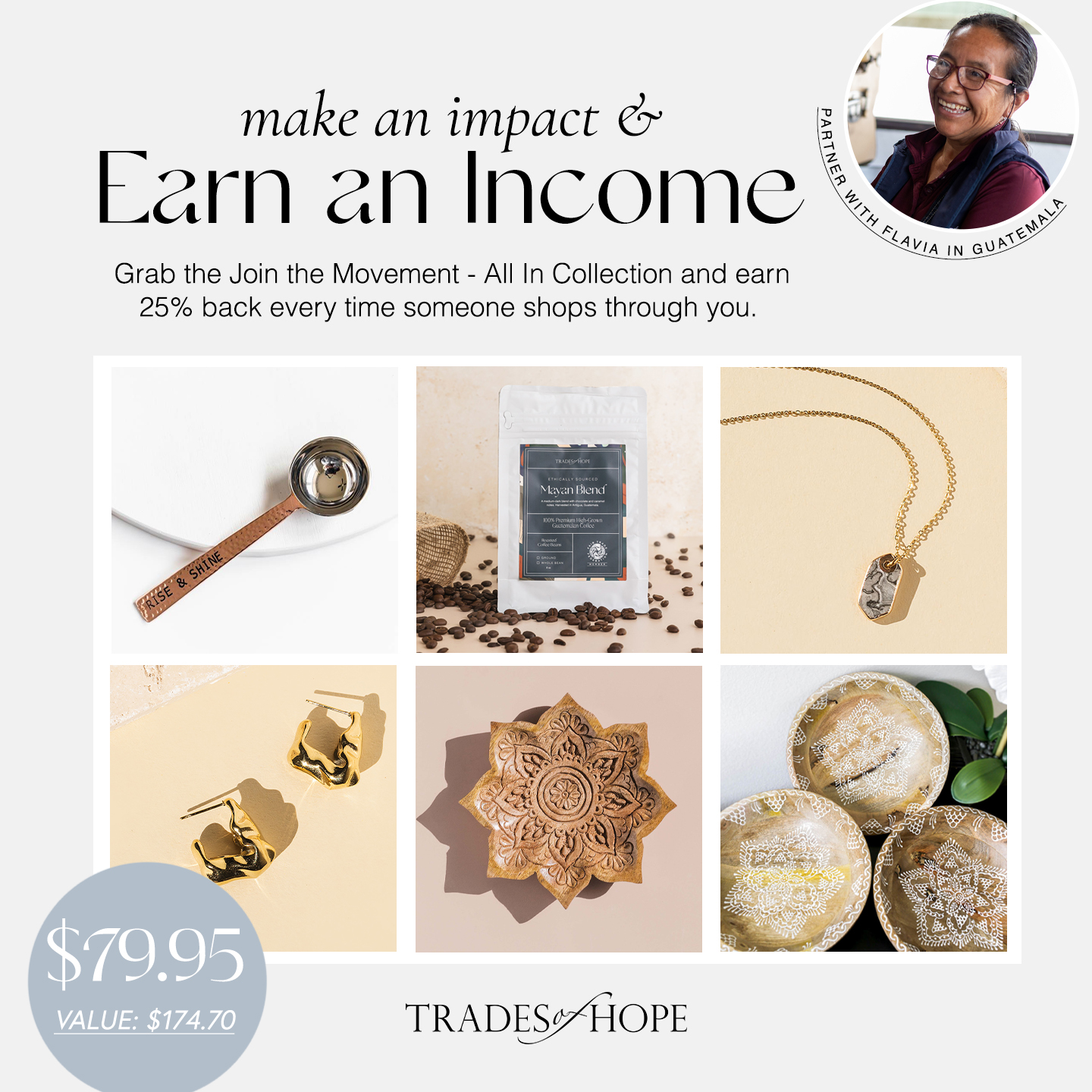
0 Comments